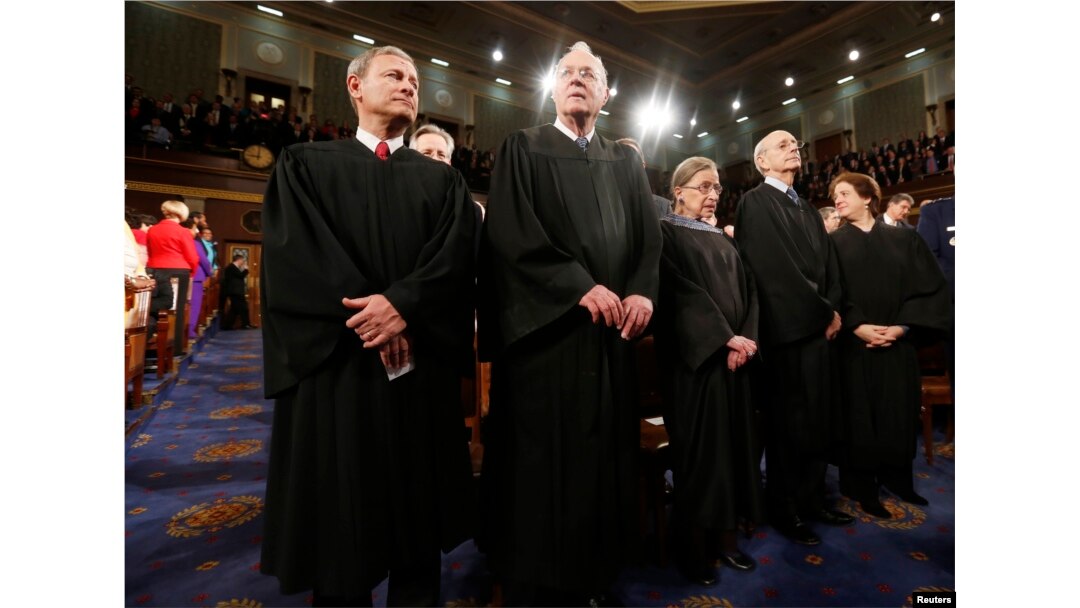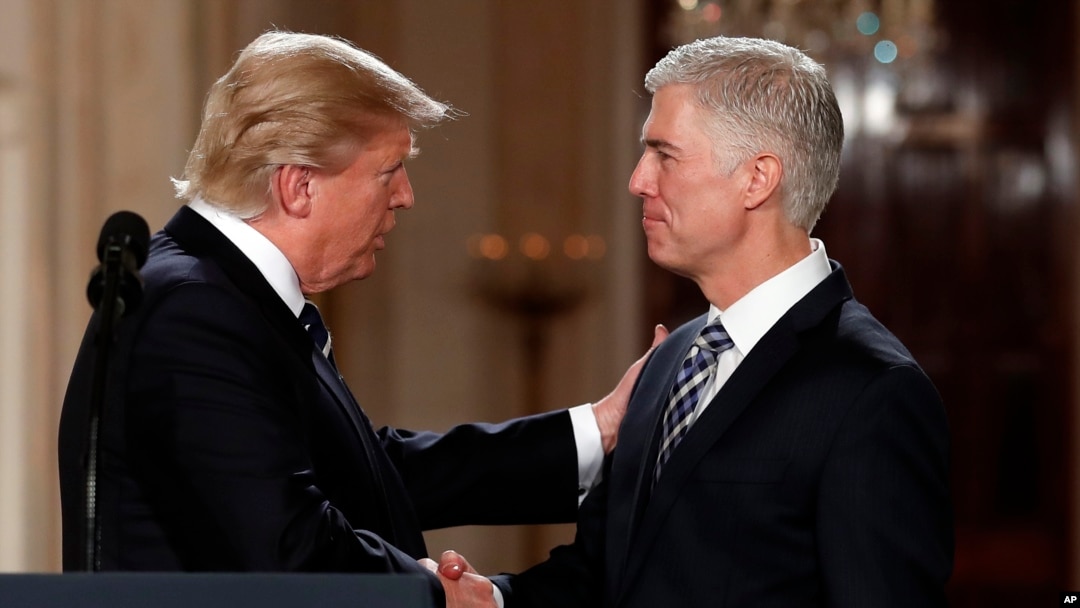Neil Gorsuch, President Donald Trump’s choice for the United States Supreme Court, has something in common with the court’s current members.
He studied at Harvard Law School, as did four current Supreme Court justices. A fifth justice, Ruth Bader Ginsburg, attended Harvard, but graduated from Columbia University’s law school. The court’s three other members graduated from Yale Law School.
The Gorsuch nomination now goes to the Senate Judiciary Committee. If he is confirmed, it means all nine Supreme Court justices will be former students at either Harvard or Yale. That is worth noting, given that the United States has more than 200 law schools.

FILE -- U.S. Supreme Court Chief Justice John Roberts (L) stands with fellow Justices Anthony Kennedy (2nd from L), Ruth Bader Ginsburg, Stephen Breyer and Elena Kagan (R) on Capitol Hill in Washington.
Nominations to the Supreme Court are among the most important made by a president. Once approved by the Senate, federal judges have lifetime positions. Someone as young as Gorsuch, who is 49, can serve for many years -- long after Trump’s presidency ends.
Top rating
Both Yale, located in New Haven, Connecticut and Harvard, in Cambridge, Massachusetts, are rated highly. In its 2017 list of law schools, US News and World Report magazine rated Yale No. 1, and Harvard No. 2.
Still not everybody is happy with their influence over the Supreme Court.
Jonathan Turley is a law professor at George Washington University in Washington D.C. He says that Gorsuch “is widely viewed as a powerful writer and intellectual leader” on his Colorado federal appeals court.
But Turley said it is wrong to exclude all but graduates of two law schools.
“It not only reduces the number of outstanding candidates, but guarantees a certain insularity in training and influences on the court,” Turley wrote on his website.
Before Trump named Gorsuch, White House aides told reporters that federal judge Thomas Hardiman was the other finalist for the nomination.
U.S. Supreme Court Justice Sonia Sotomayor
Hardiman would have broken the Supreme Court’s Harvard-Yale domination. He graduated from the Georgetown University Law Center in Washington.
Obama also looked to Harvard and Yale for nominees
Many observers say Gorsuch is more conservative than the Supreme Court nominees proposed by Barack Obama. Obama, a member of the Democratic Party, served as president from 2009 until January 20th of this year.
But Trump, a Republican, followed Obama’s example in choosing a nominee from Harvard or Yale.
In his first term, Obama nominated Sonia Sotomayor, a Yale Law School graduate, and Elena Kagan, a Harvard Law School graduate. The U.S. Senate approved both nominations.
U.S. Supreme Court Justice Elena Kagan
In his second term, Obama chose Merrick Garland, another Harvard Law graduate. But Senate Republicans refused to consider his nomination. Republicans said the choice should be left to the winner of the 2016 presidential election.
In that election, Trump defeated former Secretary of State Hillary Clinton, the Democratic candidate.
Since 1975, only two nominees to the high court came from schools not called Yale or Harvard. In 1975, President Gerald Ford named John Paul Stevens, a graduate of Northwestern University School of Law in Illinois.
In 1981, President Ronald Reagan named Sandra Day O’Connor, a graduate of Stanford University’s law school in California.
If the Senate approves Gorsuch, he would replace Antonin Scalia. Scalia joined the Supreme Court in 1986. He was the nominee of President Reagan. Scalia served until his death in February, 2016. He, too, attended Harvard Law School.
In a 2010 report, a Georgetown University’s Patrick Glen wrote that people attending law schools other than Harvard and Yale should lower their expectations.
Non-Harvard or Yale Law School graduates can become judges, just not on the Supreme Court, Glen wrote.


